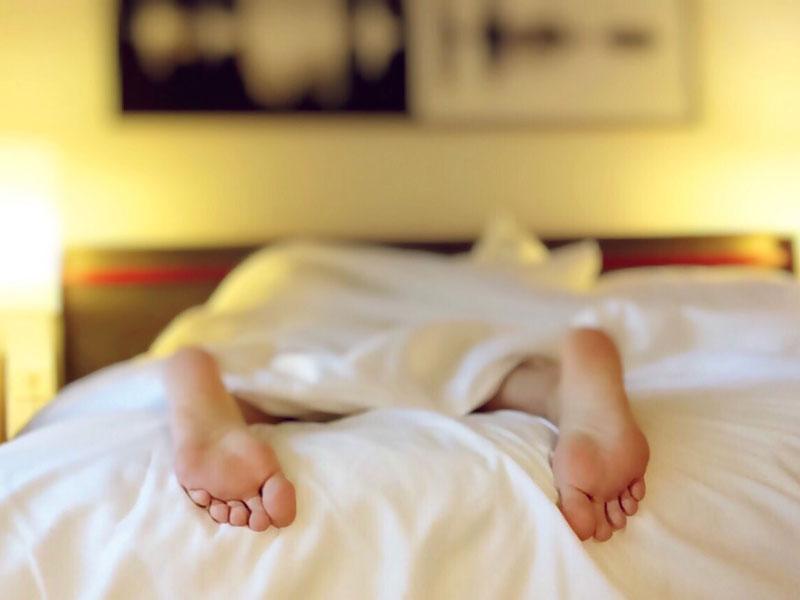Sleep is a vital component in the overall health and well-being of e-sport athletes. Everyone needs sleep to function at their best but for serious gamers, getting the right amount of quality sleep is critical to attaining peak performance.

Recovery is one of the most important benefits of quality sleep, allowing for muscles to rest, for cells and tissue to repair, and for the mind to be refreshed. The changes in heart rate and breathing while going through the different stages of sleep helps promote cardiovascular health. During sleep, the body also produces hormones that help the immune system fight infections and prevent illness.
On the other hand, studies have shown that a lack of sleep can adversely affect an athlete’s performance in any sport. For professional gamers, sleep deprivation could mean reduced accuracy and resistance to stress. Without adequate sleep, a player tends to tire out faster. And over time, poor sleeping habits can result to decreased reaction time, as well as a diminished ability to think clearly and make quick, strategic decisions.
This makes adequate amounts of sleep as vital to professional gamers as proper training and good nutrition, simply because it is an equally important factor in producing — and sustaining — the high levels of performance expected from their elite ranks.
How much sleep are e-sports athletes getting?
Apparently, not as much as they should. And this sleep deficit can have serious adverse effects on a gamer’s physical and mental health.
A recent study that investigated the correlation between the sleep characteristics and mood of professional e-sports athletes showed that those competing in elite levels tend to have “delayed sleep patterns, experience prolonged wake after sleep onset, and obtain less than seven hours of sleep per night.” It was also observed that it is “conceptually possible” to suggest that a longer duration of training time can make players more susceptible to depression, as working excessively long hours degrade the quality of sleep.
Indicators of sleep inadequacy include: sleep duration of less than seven hours a night, sleep dissatisfaction and unrefreshing sleep, longer sleep onset latency or SOL (the length of time it takes to fall asleep), daytime sleepiness, and daytime fatigue.
Given the massive amounts of physical and mental stress required by rigorous training and competition, sports scientists advise that professional athletes in any sport should ideally get a minimum of 10 hours of sleep to help their body recover faster and preserve cognitive functions. Good quality sleep not only replenishes energy and repairs damaged muscle tissue, it also promotes mental alertness and allows players to retain muscle memory for improved performance.
The positive effects of napping
Power naps have proven to be beneficial to both traditional athletes and professional gamers who wish to make up for a night of inadequate sleep. To be effective, a power nap should be time from between 20-30 minutes, just before the body enters a phase of deep sleep. Taking a power nap right before a training session can enhance one’s mood, boost alertness and dispel fatigue, while improving cognitive performance.
Likewise, when normal sleeping patterns are disrupted by traveling or sudden changes in everyday routine, taking well-timed power naps can help fill the gap by insufficient nighttime sleep. For most people, a napping after lunch can be reinvigorating and can help overturn an afternoon slump.
Causes of poor sleep
Sleep problems can stem from a variety of reasons. Factors that affect sleep include chronic medical or health issues, as well as unmanaged levels of physical and mental stress that are all known to disrupt the body’s natural sleep cycle.
Common medical conditions often associated with sleep problems include heart disease, diabetes, respiratory ailments, musculoskeletal disorders, kidney disease, neurological disorders, thyroid disease, and chronic anxiety, among others.
For individuals who are generally healthy and resilient, there are also environmental factors that may cause poor sleeping habits and affect athletic performance.
In this day and age, one of the most common culprits of poor sleep is the excessive exposure to blue light from digital screens and electronic devices, especially right before bedtime. More than just a probable cause of eye strain, blue light has a stimulating effect that disturbs the body’s circadian rhythm and suppresses the secretion of melatonin. It tricks the brain into thinking that it’s daytime, making it harder to fall asleep.
This becomes a serious consideration among e-sports athletes whose gaming and training schedules are habitually scheduled at night, as their circadian rhythm gets disrupted and tends to create a sleep disturbance.
Strategies to improve sleep
Professional gamers need to be physically, mentally, and emotionally fit to attain maximum levels of performance. This makes sleep hygiene a non-negotiable component of their everyday life.
To encourage a good night’s sleep, elite players may consider incorporating these simple measures in their daily — and nightly — routine:
- Create a peaceful, comfortable environment for inducing sleep. Most people prefer sleeping spaces that are cool, dark, and quiet. Go for maximum ease and relaxation.
- Try to maintain a consistent sleep schedule and devise a “wind down” routine that will signal to your body that it is time to settle down and go to sleep.
- Stop using blue light emitting devices, such as smart phones and laptops, at least 30 minutes before going to bed and keep them away from your bedside.
- Don’t stay awake in bed for more than 15 minutes. If you find yourself tossing and turning, go to another space and engage in a quiet activity such as reading until you feel sleepy.
- Eat clean and nutritious meals throughout the day. Avoid large dinners and try to finish eating at least two hours before bedtime.
- Stop drinking alcohol at least three hours before going to bed and skip caffeinated beverages at least six hours before bedtime.
- Maintain a positive attitude. Try to avoid stressors that can cause worry or anxiety that will keep you up at night. If needed, use sleeping aids such as soothing music, stretching exercises, or meditation techniques that can help you relax and let go of the day.


